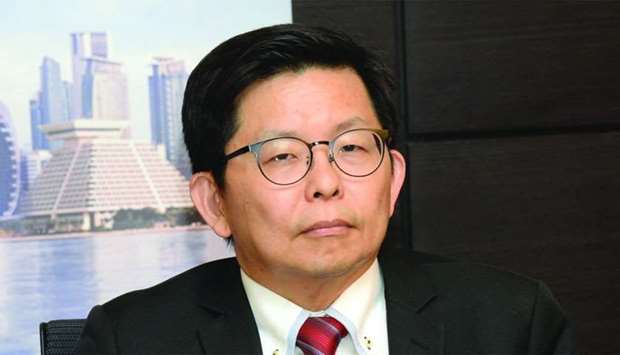Qatar has roped in global Fortune 500 companies, particularly within logistics and downstream chemicals sectors, to set up their base in the country's free zones, indicating the growing confidence among international investors amidst almost two-year economic blockade.
"For logistics and downstream chemicals, we have a very good pipeline; some of them are Fortune 500 companies. We have already signed up some of them and those are putting factories or warehouses in the zones," Qatar Free Zones Authority (QFZA) chief executive officer Lim Meng Hui told Gulf Times in an interview.
He said QFZA is in talks with several companies and they are at different stages with some discussing business plans. Some have large investment plans, hence requiring more time to study.
Qatar’s free zones, which are a new and highly attractive proposition for companies looking to invest to grow their business globally, is particularly interested in certain sectors such as logistics, downstream chemicals, emerging technologies, food technology and healthcare, according to him.
QFZA has already identified some 69 investment opportunities in partnership with Qatar Petroleum as part of efforts to diversify economy and create new jobs.
Highlighting that QFZA has already made roadshows in Japan, South Korea, China and recently in Germany, Hui said the response so far has been "overwhelming".
Asked whether the unjust economic blockade, which has been imposed on Qatar by Saudi Arabia-led quartet since June 2017, has had any effects on the talks; he said "it appears to me that it is not an issue for the companies.”
Qatar has two zones in Ras Bufontas and Um Alhoul. Given its proximity to Hamad Airport, industries based in Ras Bufontas will benefit from access to reliable air transportation services. Suitable industries in the zone include logistics, consumer products, light manufacturing, technology and applications, services and pharmaceuticals.
Um Alhoul Free Zone is directly adjacent to Hamad Port, the world’s largest Greenfield port, providing an optimal location for industries that require access to sea freight and shipping routes. Suitable industries in the zone include maritime, heavy manufacturing, industrials, emerging technologies and logistics.
"The location (of the zones), which is very near airport and seaport, is very rare," he said, adding Qatar is not just looking at the (potential and existing) companies from investments point of view but wanted them to be part of value/supply chain.
"We want them to grow here and from here to the wider region. This message has resonated well in all the places we have gone," he said, adding there is a need for Qatar to link up more with global community and for the foreign firms to partner with the local entities.
Qatar’s free zones offer not only potential access to a $3bn government-backed fund specially dedicated to promote growth and 100% ownership with full capital repatriation but also 20 years corporate tax holidays and zero customs duties on imports.




